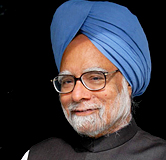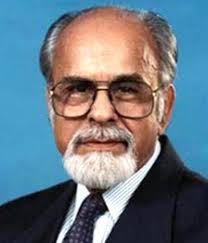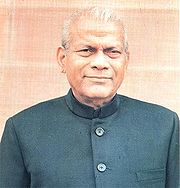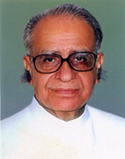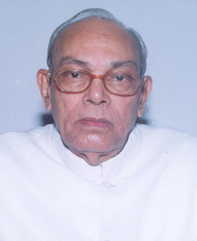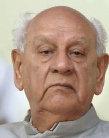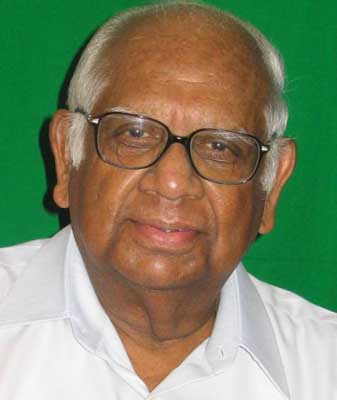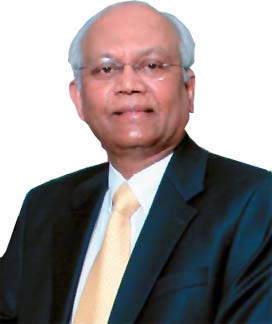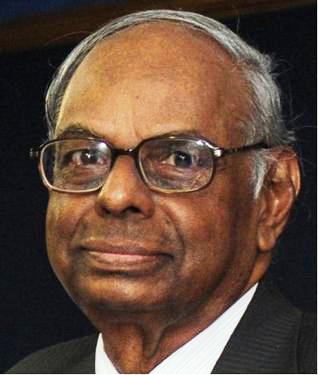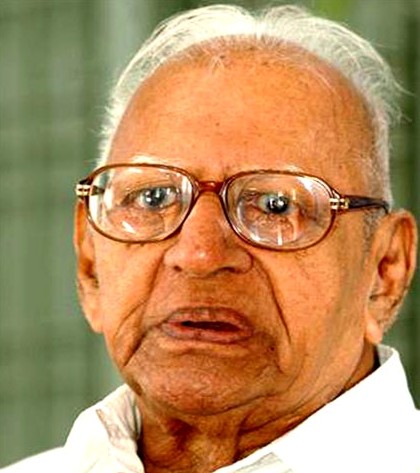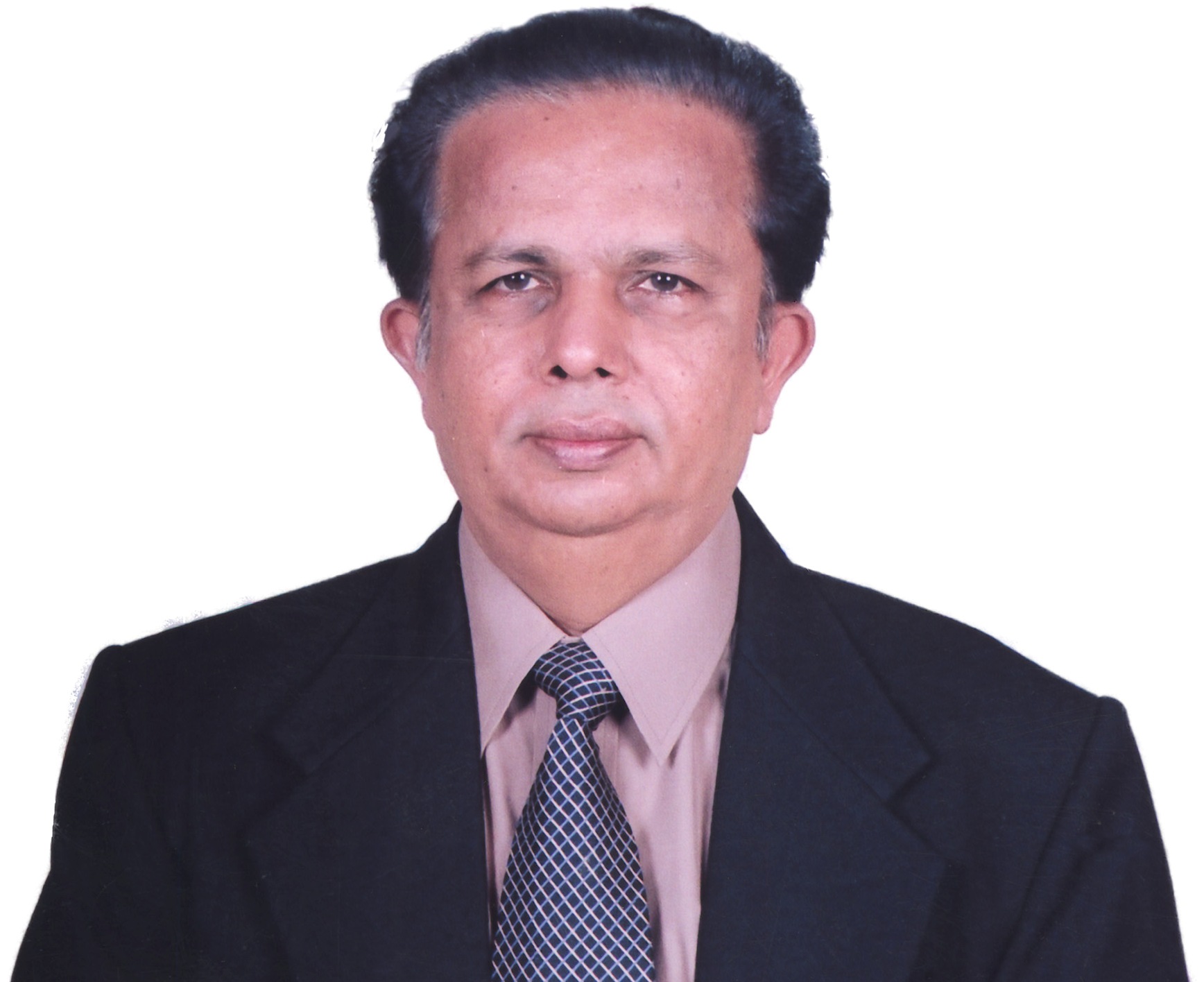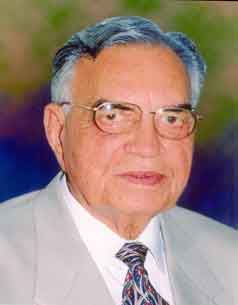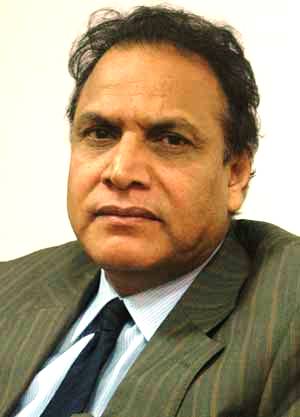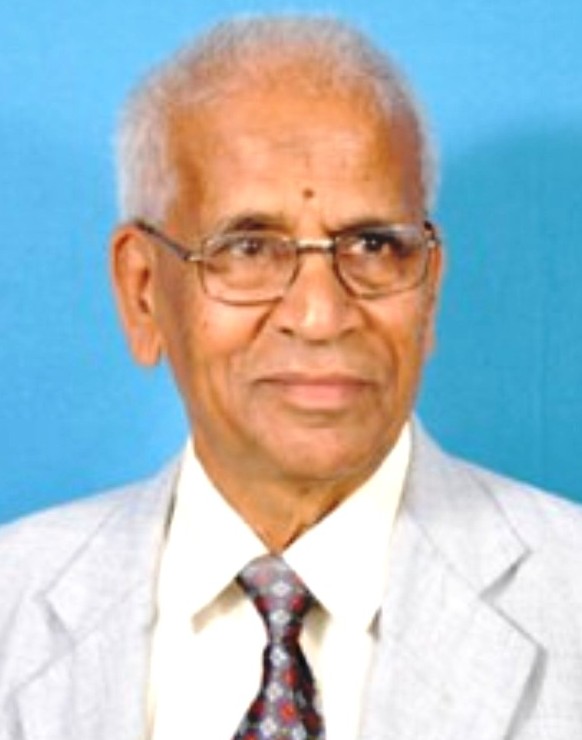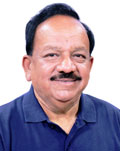Research
Testimonial
Announcements
Inviting Nominations for the Rajiv Gandhi National Awards-2020
Inviting Nominations for the Chittoor District Centenary Awards-2020.
Activities
Contact Us
DR. D. SUNDAR RAM
Founder and Director
Academy of Grassroots Studies and Research of India (AGRASRI)
# Plot No.11, Sri Venkata Sai Nilayam
Thummalagunta, S.V. University P.O.
Tirupati-517502, Andhra Pradesh. India
Mobile: +91-6302947338, +91-9441245085
E.mail: drsundarram@gmail.com | agrasridirector@gmail.com
Website: www.agrasri.org.in
SEMINAR/CONFERENCE RECOMMENDATIONS
The Academy of Grassroots Studies and Research of India has formulated the following recommendations out of the proceedings of some important national level Seminars, Conferences, Colloquiums, organised over a period of time, held at Tirupati.
National Seminar Recommendations-2006
‘Tirupati Declaration for New Panchayati Raj System’
The Academy of Grassroots Studies and Research of India (AGRASRI), has organised 2-day National Seminar on ‘Panchayati Raj Institutions After 73rd Constitution Amendment: A New Deal for Rural India’, during 19-20 August, 2006, in collaboration with the Rajiv Rural Development Foundation, at Hotel Bliss, Tirupati. The Seminar was Sponsored by the Ministry of Panchayati Raj, Government of India, New Delhi.
The National Seminar was Inaugurated by Shri M.V.Rajasekharan, Hon’ble the then Union Minister of State for Planning and Ex.Officio Member, Planning Commission of India, New Delhi, on 19 August, 2006, with Prof. G. Palanithurai, Rajiv Gandhi Chair for the Panchayati Raj Studies, Gandhigram Rural University, Gandhigram,in the chair. Shri M.V. Balakrishnan Master, President, District Panchayat, Kasargod, Kerala, Shri M.A. Khadar, President, Thirurangadi Block Panchayat, Malappuram District of Kerala, Smt. Lakshmamma, the then President, Bellandur Gram Panchayat, Bangalore Rural District of Karnataka, participated in the Inaugural session of the Seminar, as Guests of Honour. On the second day, the then Governor of Orissa and Andhra Pradesh Shri Rameshwar Thakur, participated in the deliberations as Chief Guest, with Prof. M.S. Swaminathan, Chairman, National Commission of Farmers, Govt. of India, as Main Speaker, who delivered the Fifth Rajiv Gandhi Memorial Lecture-2006.
The key document that emerged from the deliberations of the National Seminar was the ‘Tirupati Declaration for New Panchayati Raj System’. This resolution was at the centre of the recommendations made by the delegates, participants, academicians, researchers, NGO’s and elected representatives of Panchayati Raj Institutions, representing the States of Andhra Pradesh, Tamil Nadu, Karnataka, Kerala, Orissa, Rajasthan, Bihar and Haryana. The copies of the Tirupati Declaration on New Panchayati Raj System had forwarded to the policy makers at the helm of the affairs, for taking appropriate steps and initiatives in strengthening the Panchayati Raj Institutions, for delivering good governance and public services at the grassroots.
The text of the 15 point Tirupati Declaration on New Panchayati Raj System is as follows:
- To realise the potential of 73rd and 74th Constitutional Amendment Acts, a movement from below is essential and for which NGO’s CBO’s, Intellectuals, Opinion makers, Universities, Research Institutions and Media have to come forward;
- To implement the central/centrally sponsored development schemes, programmes and projects effectively finances have to be channelised through Panchayati Raj Institutions and they should be made responsible for the success of the schemes;
- To avoid overlapping, duplication and wake of resources, functional domains of Panchayati Raj Institutions should be clearly specified, which demands mapping out of activities under development activities in 29 subjects as given in the 11th Schedule of the Indian Constitution;
- Central Government can apportion a quantum of money to those states where district plans are developed through District Planning Committee by adopting due process;
- Award could be created and to be given to those panchayats who have done innovative, marvelous work in the domain of social development and social justice especially to the marginalised sections of the society;
- Gram Panchayats can be encouraging by suitable incentive methods to maintain minimum quorum with the participation of SC, ST and Women in Grama Sabha meetings;
- In order to make Grama Sabhas more effective and efficient, Ward Sabha could be created;
- For effective implementation of National Rural Employment Guarantee Scheme and to empower Panchayat for poverty alleviation and anti-poverty activities, civil society organizations have to come forward to assist panchayats for the preparation of shelf of projects;
- Taxation reforms is needed as for as Panchayati Raj finances are concerned as they do not have adequate spaces for taxation;
- Appreciate the creation of a separate Ministry of Panchayati Raj at the Centre which has been playing a role as a guide, facilitator and direction needle;
- Given the conditions of the women that too women belonging to the poor and dalit families, it is necessary to create support structure for the women and dalit leaders;
- To harness the power of the Panchayats the energy of the youth can be utilized for awareness creation, capacity building, micro-plan preparation and to build a movement from below;
- The paradigm shift from local administration to local governance has to be emphasized at all levels to change the mindset;
- Building the skill, capacity and capability of the leaders and functionaries in the grassroots democratic institutions is an imperative need and for which a policy is need of the hour; and
- In order to improve the pace and quality of administration, the facility of Information Technology would be extended, over the 11th Five Year Plan period (2007-2012) to the Panchayats with the participation of the Union and State Governments.
National Conference Recommendations -2007
Tirupati Panchayati Raj Declaration ‘Power to the People’
The Academy of Grassroots Studies and Research of India (AGRASRI),organised 2-day National Conference on ‘Role of Panchayati Raj Institutions After 60 Years of Independent India - A Vision of the Future’, during 19 and 20 August, 2007, in collaboration with the Rajiv Rural Development Foundation, Tirupati. The National Conference was sponsored by the Ministry of Panchayati Raj, Government of India, New Delhi.
The National Conference was inaugurated by Dr. A. Chakrapani, Chairman of the Andhra Pradesh State Legislative Council, on 19 August, 2007, with Shri Solipeta Ramachandra Reddy, former Member of Parliament (Rajya Sabha) and Chairman, Andhra Pradesh Local Bodies Empowerment Forum, in the Chair. Shri R. Dileep Reddy, State Information Commissioner (RTI), Govt. of Andhra Pradesh, Shri Manoranjan Bhakta, Member of Parliament (Lok Sabha), Andaman & Nicobar Islands, Professor Julian Swindell, Royal Agricultural College, Cirincester, United Kingdom, participated in the Inaugural session of the Conference, as Guests of Honour and Special Invitees. On the second day, the Governor of Kerala Shri R.L. Bhatia, the former Speaker of Andhra Pradesh Legislative Assembly Dr. Agarala Easwara Reddi, participated in the deliberations as Chief Guest and Guest of Honour, with Dr. R.A. Mashelkar, President of the Indian National Science Academy and CSIR Bhatnagar Fellow, National Chemical Laboratory, Pune, as Main Speaker, who delivered the Sixth Rajiv Gandhi Memorial Lecture-2007.
The key document that emerged from the deliberations of the National Conference was the ‘Tirupati Panchayati Raj Declaration’. This resolution was at the centre of the recommendations made by the delegates, participants and elected representatives of PRIs, representing the states of Andhra Pradesh, Tamil Nadu, Karnataka, Kerala, Maharashtra, Orissa, Rajasthan, Haryana, Delhi and Union Territories of Pondicherry and Andaman & Nicobar Islands. The copies of the Tirupati Panchayati Raj Declaration had forwarded to the policy makers at the helm of affairs, including the Union Minister for Panchayati Raj Shri Mani Shankar Aiyar, the Union Minister for Rural Development Dr. Raghuvansh Prasad Singh, the Chief Minister of Andhra Pradesh Dr. Y.S. Rajashekhar Reddy, and Chairman of the Second Administrative Reforms Commission Shri M. Veerappa Moily, for taking appropriate steps in strengthening the Panchayati Raj Institutions, as real Local Self-government Institutions after 6 decades of India’s Independence, for ‘Power to the People’ at the grassroots.
The text of the 16 point Tirupati Panchayati Raj Declaration for ‘Power to the People’ at the grassroots is as follows:
- To provide equal status to the women in governance at the grassroots, the facility of reservation of seats for women should be increased from 33 per cent to 50 per cent in Panchayati Raj Institutions;
- To scrap provisions of discretionary funds given to Members of Parliament and Members of Legislative Assemblies of various States under the Local Area Development Scheme or all these funds should be released through the Panchayati Raj Institutions only;
- To instruct State Governments to abolish District Rural Development Agency (DRDA) and similar agencies and merge their assets, functions and functionaries with Zilla Parishads/Zilla Panchayats, based on Karnataka model;
- Creation of a separate District Panchayat Raj Services should be considered, as it is done in case of IAS, IPS, IFS and State Level Services etc.;
- In order to make Gram Sabhas, which are the fulcrum of the Panchayati Raj system, more effective and efficient Ward Sabha could be created and all the developmental programmes should be implemented as per the decisions taken by the Gram Sabha only;
- To widen the empowerment of women in our polity and governance as a whole, the Union Government should give top priority to the passage of the Constitution Amendment Bill as a first step towards 50 per cent reservation of seats for women in Indian Parliament and various State Legislatures;
- The State Governments should be directed to study the existing Nyaya Panchayats and make recommendations accordingly, in order to make ‘Nyaya Panchyats’ as an integral part of the Panchayati Raj System;
- Action Taken Report (ATR) of various State Governments in respect of the devolution of 3 F’s – Functions, Functionaries and Finances – to the Panchayati Raj Institutions should be clearly published every year and distribute the same to all the Panchayati Raj Institutions, as fulfillment of the mandate of the 73rd Constitution Amendment Act, 1992;
- Measures should be taken by the Union Government for including a ‘Local Governments List’, as we have Union List, State List and Concurrent List in the Constitution of India;
- An enabling environment should be created, especially for the Rural Industries and Cottage Industries, to participate effectively in rural livelihood programmers and subsequent sustainability for enhancing the rural transformation;
- Article 243 A of the 73rd Panchayati Raj Amendment Act, 1992 be reviewed with a view to remove the word ‘may’ (where ever it comes) and incorporate ‘shall’, for enlarging the scope of the Act;
- The State Governments should bring the awareness on the Citizens Charter and Right to Information Act among the people and allocate special funds in the Budget for the purpose; These two should be incorporated in PR Acts of the States in the country;
- To take steps to implement the reservation facilities to all categories in the Panchayati Raj Institutions for at least 2 terms or a period of 10 years;
- The recommendations of the Grama Sabha in regard to developmental programmes should not be overlooked any further and the Grama Sabha recommendations must be implemented by the Gram Panchayats as mandatory;
- To give emphasis to the training, field visits and exposure visits of Panchayati Raj elected representatives for enhacing the Capacity Building and Skills in delivery of services to the people and to this effect, the State Governments should consider the NGO’s and Professional bodies also as training partners; and
- To counteract the negative implications and consequences of globalisation, liberalisation and privatisation, Panchayat Raj Institutions should be strengthened appropriately.
National Conference Recommendations-2008
Tirupati Declaration on ‘Women Political Empowerment’
The Academy of Grassroots Studies and Research of India (AGRASRI),organised 2-day National Conference on ‘Empowerment of Women in Parliament and Local Government Institutions in India: Role, Status, Participation and Decision-making’, during 19 and 20 August, 2008, in collaboration with the Rajiv Rural Development Foundation, Tirupati. The National Conference was sponsored by the National Commisson for Women, Government of India, New Delhi.
The National Conference was inaugurated by Smt. Prema Cariappa, Chairperson,Central Social Welfare Board, Govt. of India, New Delhi, on 19 August, 2008, with Shri R. Dileep Reddy, State Information Commissioner (RTI), Govt. of Andhra Pradesh, in the Chair. Smt. Rajini Satav, the then Chairperson, Maharashtra State Commission for Women, Smt. K. Ramadevi, Chairperson, Andhra Pradesh State Social Welfare Board, participated in the Inaugural session of the Conference, as Guests of Honour. On the second day, the then Governor of Andhra Pradesh Shri N.D. Tiwari, participated in the deliberations as Chief Guest, with Dr. C. Rangarajan, Chairman, Economic Advisory Council to the Prime Minister of India, as Main Speaker, who delivered the Seventh Rajiv Gandhi Memorial Lecture-2008.
The key document that emerged from the deliberations of the National Conference was the ‘Tirupati Declaration on Women Political Empowerment’. This resolution was at the centre of the recommendations made by the delegates, academicians, researchers, participants and women elected representatives and activists of Panchayati Raj Institutions, representing the States of Gujarat, Rajasthan, Tamil Nadu, Karnataka, Andhra Pradesh, Maharashtra, Chhattisgarh, Orissa, Delhi, and Assam and Union Territory of Pondicherry. The copies of the Tirupati Declaration on Women Political Empowerment is being forwarded to the policy makers at the helm of the affairs, for taking appropriate steps and initiatives in strengthening the women representation in Parliament and State Legislative Assemblies, as per the proportionate of their population in India.
The text of the 14 point Tirupati Declaration on Women Political Empowerment is as follows:
- Encourage the involvement of women in decision-making at all levels and achieve gender balance in the appointment of women and men, with full respect for the principle of equitable population distribution, including as judges, civil servants, ambassadors, assembly speakers, union ministers, state level ministers, chief ministers and governors, besides Members of Parliament and State Legislatures;
- At the level of Panchayati Raj Institutions, most of the states already cross the mark of 33 per cent seats of reservation for Women. The states of Bihar and Madhya Pradesh have already made provision of 50 per cent in their Statutes (PRIs Act). The other States should also follow the Bihar and Madhya Pradesh model immediately, in this respect;
- There is a vacuum in the capacity building of PRIs elected representatives as well as officials, even after 15 years of enactment of the 73rd Constitution Amendment Act. It requires utmost and urgent attention for imparting Training to all the elected representatives of PRI’s in a regular manner for delivering good governance at the grassroots;
- The flow of funds from various sources towards the rural development and the poverty alleviation programmes should be linked with the performance of Panchayati Raj Institutions. The outlays and the outcome should be assessed and monitored accordingly, by the Central as well as State Governments;
- For achieving the inclusive growth with rural development and the effective rural governance, the participation of Women and Self-Help Group Members should be encouraged by the State Governments;
- The Panchayati Raj Institutions should be encouraged and promoted in the implementation of various developmental programmes and activities, on par with the NGO’s, CBO’s and SHG’s;
- Women representatives are trailing behind in decision-making in rural governance. The capacity building of these bodies needs special attention. The provision should be made for special training to the women representatives at the grassroots as well as at the State and National levels;
- Drawing the lessons from the successful implementation of 33 per cent of reservation for Women at the level of third-tier governance through 73rd Constitution Amendment Act, it can be implemented at the State Assembly and Parliament level also in the next general elections onwards;
- In addition to the Government Training Institutions, the NGO’s and Women Training Institutions should be encouraged to involve in capacity building. The guidelines and responsibilities of these bodies on different modules for Zilla, Taluk and Gram Panchayats should be designed for imparting the training;
- Develop national capacity to undertake policy-oriented and gender-related research and impact studies by Universities and National Research/Training Institutes to enable gender-specific knowledge-based policy-making;
- The decentralised planning has got momentum over the years. The participatory planning and the participatory democracy can be achieved through the active participation and involvement of women policy makers and activists at the grassroots through Panchayati Raj Institutions;
- For an effective implementation of the National Rural Employment Guarantee Programme at all India level, the youth women and youth organisations should encourage and promote for their active participation;
- Apply and support positive measures to give all women, particularly youth women, equal access to capacity-building and training programmes to enhance their political participation and decision-making in all fields and at all levels, as women policy makers;
- Bring suitable Amendment in the Constitution for the provision of at least 50 per cent seats of reservation for women in Parliament and State Legislatures, as the women representatives are less corrupt, transparent and duty-minded than male representatives.
National Colloquium Recommendations-2009
AGRASRI Declaration on ‘Grassroots Planning and People’s Participation in Local Governance’
The Academy of Grassroots Studies and Research of India (AGRASRI),organised 2-day National Colloquium on ‘Grassroots Level Planning and Local Government Institutions in India: Policy Initiatives and People’s Participation since 1992’, during 19 and 20 August, 2009, in collaboration with the Rajiv Rural Development Foundation, Tirupati. The National Conference was sponsored by the National Commisson for Women, Government of India, New Delhi.
The National Colloquium was inaugurated by Shri A.N. Tiwari, IAS (Retd.),Central Information Commissioner (RTI), Govt. of India, New Delhi, on 19 August, 2009, with Dr. Tripuraneni Hanuman Chowdary, Chairman, Pragna Bharati, Secunderabad, the Chair. Dr.S.S.Meenakshi Sundaram, IAS (Retd.), Former Secretary, Ministry of Rural Development, Govt. of India, delivered the Key-Note Address. On the second day, the then Governor of Himachal Pradesh Smt. Prabha Rau, participated in the deliberations as Chief Guest, with Dr. G. Madhavan Nair, the then Chairman, Indian Space Research Organisation, Govt. of India, as Main Speaker, who delivered the Eighth Rajiv Gandhi Memorial Lecture-2009.
The key document that emerged from the deliberations of the National Colloquium was the ‘AGRASRI Declaration on Grassroots Planning and People’s Participation in Local Governance’. This resolution was at the centre of the recommendations made by the delegates, academicians, researchers, participants and elected representatives and activists of Panchayati Raj Institutions, representing the States of Kerala, Karnataka, Tamil Nadu, Andhra Pradesh, Rajasthan, Maharashtra, Madhya Pradesh, Orissa, Haryana and Delhi. The copies of the ‘AGRASRI Declaration on Grassroots Planning and People’s Participation in Local Governance’ is being forwarded to the policy makers at the helm of the affairs, for taking appropriate steps and initiatives in strengthening the grassroots level planning and people’s participation in decision-making, as per the guidelines of the 11th Five Year Plan period, by the policy makers.
The text of the 13 point ‘AGRASRI Declaration on Grassroots Planning and People’s Participation in Local Governance’ is as follows:
- Right to Information towards all the Government GO’s - both State and Central Governments- related to Rural Development and Panchayati Raj to be officially sent to the Presidents of Zilla Parishads of all districts in India;
- Institutional Framework should clearly define the role of State Government which should progressively strengthen the Panchayati Raj Institutions and not be allowed to take any retrograde steps that could weaken the spirit and the process of decentralisation. Measures should be taken by the Union Government for including the powers and functions of all Panchayati Raj and Nagar Palika Institutions under ‘Local Governments List’, as we have Union List, State List and Concurrent List in the Constitution of India;
- Parallel bodies shall be completely abolished. All centrally sponsored schemes should go through District Planning Committees/Zilla Panchayats, including Member of Parliament Local Area Development Fund (MP LAD) and Member of Legislative Assembly Local Area Development Fund (MLA LAD);
- District Planning Committees shall be made fully effective with Zilla Panchayat President as its Chairman in all the DPC’s in all States across the country;
- Appropriate Mechanism shall be formulated in place where incomplete/spill over works to be carried forward to the next year, and completed before taking up new works;
- Creation of a separate District Panchayat Raj Services should be considered, as it is done in case of IAS, IPS, IFS and State Administrative Services etc. and providing 2-year training, before they are posted in District Panchayats;
- In order to make Gram Sabhas, which are the fulcrum of the Panchayati Raj system, more effective and efficient, Ward Sabhas could be created and all the developmental programmes should be implemented as per the decisions taken by the Gram Sabha only;
- To instruct State Governments to abolish District Rural Development Agency (DRDA) and similar agencies and merge their assets, functions and functionaries with Zilla Parishads/ Zilla Panchayats in all States, based on Karnataka model;
- The recommendations of the State Finance Commissions should be accepted and implemented fully by the State Governments, on the lines of Union Finance Commission at the centre;
- To take steps to implement the rotation system to all reserved categories in the Panchayati Raj Institutions by prescribing a period of at least 2 terms or 10 years;
- To counteract the negative implications and consequences of globalisation, liberalisation and privatisation, Panchayat Raj Institutions should be strengthened appropriately and encourage the Private-Public Partnership concept in the developmental works of the Panchayati Raj Institutions;
- The Union and State Governments should bring the awareness on the grassroots planning among the rural people and elected representatives of Panchayati Raj Institutions, through Civil Society Organisations, Professional and Training Institutes from Gram Panchayat to Distrct Panchayat level and allocate special funds in the Budget for the purpose;
- Apply and support positive measures towards all the grassroots democratic institutions, particularly gram panchayats and access to capacity-building and orientation on various developmental and welfare programmes to enhance their political participation and decision-making in all sectors and at all levels, as grassroots policy makers, for delivery of services.
National Convention Recommendations- 2010
Tirupati Declaration on ‘50 Percent Reservations for Women in Rural and Urban Local Bodies in India’
The Academy of Grassroots Studies and Research of India (AGRASRI), an autonomous, non-profit and Non-Governmental Professional Organisation, being headquartered at Tirupati, organised 2-day National Convention on ‘50 Per cent Reservations for Women in Rural and Urban Local Bodies in India: A Way Forward for Inclusive Growth’, during 20 and 21 August, 2010, at Hotel Bliss, Tirupati, in collaboration with the Rajiv Rural Development Foundation, Tirupati. The National Conference was sponsored by the National Commission for Women, Govt. of India, New Delhi.
The National Convention was Inaugurated by Dr. Agarala Easwara Reddi, Former Speaker of Andhra Pradesh Legislative Assembly, Hyderabad, with Shri Solipeta Ramachandra Reddy, Former Member of Parliament (Rajya Sabha), in the Chair. Smt. K. Shanta Reddy, Former Member, National Commission for Women, Government of India, New Delhi, delivered a Key-Note Address. On the second day, Prof. B.K. Chandrasekhar, Former Chairman, Karnataka Legislative Council, Bangalore and Shri Solipeta Ramachandra Reddy, Former Member of Parliament (Rajya Sabha), participated in the deliberations as Chief Guest and President, with Dr. (Mrs) Manju Sharma, President & Executive Director, Indian Institute of Advanced Research, Ahmedabad and Former Secretary, Department of Bio-Technology, Government of India, as Main Speaker, who delivered the Special Lecture on ‘Role of Women Scientists in National Development’.
The key document that emerged from the deliberations of the 2-day National Convention, Sponsored by the National Commission for Women, Govt. of India, was the ‘AGRASRI Declaration on 50 Per cent Reservations for Women in Rural and Urban Local Bodies in India. This resolution was at the centre of the recommendations made by the delegates, academicians, researchers, participants and women elected representatives of Panchayati Raj Institutions and NGOfunctionaries, representing the States of Kerala, Tamil Nadu, Karnataka, Andhra Pradesh, Maharashtra, Orissa, Madhya Pradesh, Goa and Delhi. The copies of the Tirupati Declaration on Reservations for Women in Rural and Urban Local Bodies in India, has forwarded to the policy makers at the Union and State Governments, for taking appropriate steps and initiatives in strengthening the political participation of women elected representatives in decision-making at the grassroots level, as women policy makers.
The text of the 9 point AGRASRI Declaration on Reservations for Women in Rural and Urban Local Bodies in India, is as follows:
- To avoid the interference of men in day-to-day administration of women elected representatives of PRI’s and Nagar Palikas.
- To impart vigorous and continuing capacity building and training programmes exclusively for women elected representatives of local bodies.
- To formulate a goal for future course of action by the women themselves for their empowerment.
- To sensitise the men towards the women empowerment and see that to receive their whole hearted support and co-operation.
- To establish the Village Knowledge Centres exclusively for women elected representatives of local bodies for improving an update knowledge about the grassroots level problems and realities.
- To disseminate the rule position and constitutional safeguards in respect of women empowerment though booklets, pamphlets and other literature through civil society organisations and research institutes.
- To organise regional level seminars, workshops, and guest lecture programmes for sensitising the women as active grassroots level policy makers.
- To prepare the budget estimates and its implementation at the grassroots level in proportion to women population as per their desires and expectations.
- To educate the rural women in mission mode for understanding the administrative mechanism for delivering good governance at the grassroots level by each and every district administration in India.
Regional Workshop Recommendations- 2011
AGRASRI Declaration on ‘Political Participation of Women and Inclusive Growth in India’
The Academy of Grassroots Studies and Research of India (AGRASRI) has organised 2-day Regional Workshop on ‘Political Participation of Women in Decision-making for Inclusive Growth in India: Policy Initiatives and Implementation’, during 25 and 26 November, 2011 at Hotel Bliss, Tirupati, Andhra Pradesh. The Regional Workshop was sponsored by the National Commission for Women, Government of India, New Delhi.
The Regional Workshop was Inaugurated by Dr. V. Shanta, World renowned Cancer Specialist and Chairperson, Cancer Institute, Chennai, on 25th November, 2011 at 10.30 a.m. at Hotel Bliss (Darbar Hall), Tirupati, with an address. Smt. K. Shanta Reddy, Former Member, National Commission for Women, New Delhi, has delivered a Key-Note Address. Dr (Mrs) B. Vengamma, Director and Vice-Chancellor of Sri Venkateswara Institute of Medical Sciences, Tirupati; Prof. R. Ramamurthi, Past-General President of Indian Science Congress and Former Vice-Chancellor of Sri Venkateswara University, Tirupati; and Smt. N. Vijayalakshmi, Vice-President, Telugu Desam Party State Mahila Vibhagam, Hyderabad, were participated in the Inaugural Session of the Regional Workshop, as Guest of Honour, Special Guest and Special Invitee.
Dr. Agarala Easwara Reddi, Former Speaker of Andhra Pradesh Legislative Assembly, Hyderabad, has delivered the Valedictory Address at the Regional Workshop. Dr. P.V. Sesha Reddy, District Panchayat Officer, Chittoor, has participated in the Valedictory Session, as Guest of Honour. Shri Solipeta Ramachandra Reddy, Former Member of Parliament (Rajya Sabha) presided over the Valedictory Session.
After 2-days deliberations of the Regional Workshop, the following 5 recommendations were formulated:
- To impart a vigorous capacity building and training programmes exclusively for women in administrative skills and political management;
- To improve the literacy rate among the women in rural areas;
- To bring awareness and sensitisation for SC, ST, BC and Minority Women on govt. schemes and programmes towards women empowerment, by the Civil Society Organisations at the grassroots level;
- To establish the network between University and Research Institutes intellectuals and NGO representatives for utilising their expertise and counsel for women empowerment; and
- To drive a massive campaign against the abortions and support the birth rate of female population.
Regional Seminar Recommendations- 2014
Tirupati Declaration on ‘Active Participation of Women in Decision-making Process in India’
The Academy of Grassroots Studies and Research of India (AGRASRI), an autonomous, non-profit and Non-Governmental Professional Organisation, being headquartered at Tirupati, organised 2-day Regional Seminar on ‘Emerging Leadership of Women in Panchayati Raj Institutions: A Way Forward for Inclusive Growth in Contemporary India’ , during 10 and 11 March, 2014, at Hotel Bliss, Tirupati. The Regional Seminar was sponsored by the National Commission for Women, Govt. of India, New Delhi.
The Regional Seminar was Inaugurated by Dr. Agarala Easwara Reddi, Former Speaker of Andhra Pradesh Legislative Assembly, Hyderabad. Smt. N.P. Durga, Former Member of Parliament (Rajya Sabha), New Delhi, delivered the Key-Note Address. Dr (Mrs) B. Vengamma, Director & Vice-Chancellor of Sri Venkateswara Institute of Medical Sciences University, Tirupati and Smt. K. Shanta Reddy, Former Member, National Commission for Women, Government of India, New Delhi, participated as Guests of Honour. On the second day, Shri Y. Srinivasulu Reddy, Hon’ble Member of Legislative Council, Andhra Pradesh, Hyderabad, delivered the Valedictory Address.
The establishment of value based society in contemporary India is possible only through active participation of women in decision-making process in the local governance from grama sabha to lok sabha, unanimously opined by the delegates, participants and experts at the conclusion of 2-day regional seminar held on 10 and 11 March here, under the aegis of the Academy of Grassroots Studies and Research of India (AGRASRI), Tirupati-based professional NGO.
After 2-days deliberations of the Regional Seminar, the following 6 recommendations were formulated:
The 6 recommendations of the Regional Seminar are as follows:
- To impart exclusive capacity building and awareness camps for rural women in a regular manner at gram panchayats and educational institutions;
- To distribute small booklets in local language about the existing laws and literature on women rights and empowerment;
- To sensitise the men community towards women empowerment and their overall development as change makers in the decision-making process of women for inclusive growth;
- To provide marshal arts for girls and women at educational institutions and work place, for self security and protection from rape and acid attacks on women;
- To organise model parliament/model assembly/model gram sabha for girl students at the college and school level for understanding political leadership qualities, as future women leaders; and
- To give certain percentage of seats exclusively for the Self-Help Group Members in the Panchayati Raj elections as women representatives for smooth and effective financial management of Gram Panchayats.
National Round-Table Meeting Recommendations - 2015
Tirupati Declaration on ‘Basic Sanitation in Rural India: Future Vision and Road Map for Swachh Bharat’
The Academy of Grassroots Studies and Research of India (AGRASRI) has organised the National Round-Table Meeting on ‘Basic Sanitation in Rural India: Future Vision and Road Map for Swachh Bharat’, on 20 August, 2015 at Hotel Bliss, Tirupati, Andhra Pradesh, in conjunction with the 13th Rajiv Gandhi Memorial Lecture and conferment of the Rajiv Gandhi National Awards programme. The National Round-Table Meeting was Sponsored by the Sulabh International Social Service Organisation, New Delhi and Rajiv Gandhi National Institute of Youth Development, Govt. of India, Sriperambudur, Tamil Nadu.
The National Round-Table Meeting was inaugurated by Prof. V.R. Panchamukhi, Former Chairman, Indian Council of Social Science Research, Ministry of Human Resource Development, Govt. of India, New Delhi, on 20 August, 2015 at 10.30 a.m. at Hotel Bliss (Darbar Hall), Tirupati, with an Inaugural Address. Dr. K. Chandramouli, IAS (Retd.), Former Commissioner, Andhra Pradesh Academy of Rural Development, Govt. of Andhra Pradesh, has delivered a Key-Note Address. Prof. P. V. Arunachalam, Founder Vice-Chancellor of Dravidian University, Kuppam, Andhra Pradesh, presided over the Inaugural Session of the National Round-Table Meeting. Noble Laureate in Peace and awardee Dr. Rajendra Kumar Pachauri, has participated in the Inaugural Session of the National Round-Table Meeting, as distinguished Special Guest.
The key document that emerged from the deliberations of the National Round-Table Meeting was the ‘Tirupati Declaration on Basic Sanitation in Rural India: Future Vision and Road Map for Swachh Bharat’. This resolution was at the centre of the recommendations made by the delegates, academicians, researchers, participants, sanitation experts, elected representatives of Panchayati Raj Institutions and NGO functionaries, representing the States of Kerala, Tamil Nadu, Karnataka, Andhra Pradesh, Telengana, Uttar Pradesh, Bihar, Odisha, West Bengal and Delhi. The copies of the ‘Tirupati Declaration on Basic Sanitation in Rural India: Future Vision and Road Map for Swachh Bharat’ has forwarded to the policy makers at the Union and State Governments, for taking appropriate steps and initiatives in successful implementation of Swachh Bharat Abhiyan by 2019, the 150th Birth Anniversary of Mahatma Gandhi, Father of the Nation.
The text of the 9 point ‘TIRUPATI Declaration on Basic Sanitation in Rural India: Future Vision and Road Map for Swachh Bharat’, is as follows:
- To bring the social awareness at the grassroots level on Basic Sanitation among the rural people and elected representatives of Panchayati Raj Institutions, through Civil Society Organisations, Professional and Training Institutes from Gram Panchayat to Distrct Panchayat level and allocate special funds in the Budget for the purpose, instead of releasing press advertisements and photo publicity by the Union and State Governments
- To define clearly the institutional framework and role of Gram Panchayat for strengthening the basic sanitation facilities in villages, with active people’s participation, in a mission mode like Sanitation for All
- To formulate appropriate mechanism in the construction of Toilets in rural villages, with necessary prerequisites such as water, drainage, management and cost-effective systems, with the expertise and technology based institutions like Sulabh International
- To provide capacity-building and orientation on various models of sanitation to the concerned maintenance staff to enhance their understanding and skills for management of existing toilets in Gram Panchayats
- To counteract the negative implications and consequences of health hazards such as diarrheal diseases, schistosomiasis, soil-transmitted helminthes infections among the rural population and encourage the Private-Public Partnership concept in the construction of Toilets under Corporate Social Responsibility of Industries and Companies through Non-Governmental Organisations
- To develop the technologies for safeguard the environment and maximize the potential of waste products to be reused at the local level for long-term sustainability of sanitation systems and processes in achieving the targets of Swachh Bharat Abhiyan
- To construct the need based toilets for user friendly for disability people, women, old persons with appropriate designs (western model) in rural areas
- To impose fine on the persons practicing open defecation in Villages through Gram Sabhas of the respective Gram Panchayat and publish the details of those persons in the Gram Panchayat Office
- To change the mindset of citizen in rural villages about the bad sanitation and health hazards and to transform the people’s attitude towards the construction of household toilet as a dignity of humanity at every house.
Capacity Building Programme for SC and ST Elected Representatives of PRI’s in AP-2016
10 Point Declaration on ‘Exclusive Capacity Building Programme for Schedule Caste and Scheduled Tribe Elected Representatives of PRIs’
The Academy of Grassroots Studies and Research of India (AGRASRI), a registered professional Non-Governmental Organisation, being headquartered at Tirupati, has organised 5-day Capacity Building Programme on the aforesaid theme during 5,6,7,8 and 9 February, 2016 at Youth Hostel Conference Hall, Tirupati, Andhra Pradesh, in joint Collaboration with the Rajiv Gandhi National Institute of Youth Development, Govt. of India, Sripermabudur, Tamil Nadu.
The Capacity Building Programme was inaugurated by Dr (Mrs). G. Kuthuhalamma, Former Deputy Speaker of Andhra Pradesh Legislative Assembly, Hyderabad, on 5 February, 2016 at 10.30 a.m. at Youth Hostel Conference Hall, Tirupati, with address. Dr. V. Varaprasada Rao, IAS (Retd.), Hon’ble Member of Parliament (Lok Sabha), Tirupati, has delivered the Key-Note Address.
Dr. Agarala Easwara Reddi, Former Speaker of Andhra Pradesh Legislative Assembly, Hyderabad, has delivered the Valedictory Address on 9 February, 2016 at 4.00 p.m. at Youth Hostel Conference Hall, Tirupati. Prof. A. Ranga Reddy, Chairman, Indian Institute of Public Administration Local Branch, Tirupati, presided over the Valedictory Session.
The key document that emerged from the deliberations of the Capacity Building Programme was the ’10 Point Declaration on Exclusive Capacity Building Programme for SC and ST Elected Representatives of PRI’s in Andhra Pradesh’. This resolution was at the centre of the recommendations made by the delegates, academicians, researchers and elected representatives of Panchayati Raj Institutions and NGO functionaries, representing various Mandals of Chittoor District of Andhra Pradesh. The copies of the Tirupati Declaration, has forwarded to the policy makers at the Union and State Governments, for taking appropriate steps and initiatives in organising a regular exclusive Capacity Building Programmes for SC and ST elected representatives of PRI’s in Andhra Pradesh, under SC and ST Sub-plan.
The Delegates and Participants unanimously ratified the following recommendations at the Capacity Building Programme as 10 Point Declaration on Exclusive Capacity Building Programme at Tirupati on 9th February, 2016.
The text of the 10 Point TIRUPATI Declaration, is as follows :
- To provide a space for elected MPTC’s in all Gram Panchayat Offices for operating their day-to-day administration, as representatives of PRI’s.
- To delegate certain powers and functions to elected MPTC’s in discharging their duties as grassroots level policy makers
- To provide Honorarium to the Ward Members exclusively for the SC and ST categories
- To implement the reservations for SCs and STs up to 10 years at a stretch, instead of the present existing 5 years period
- To provide a Voting Right to all Sarpanchs in MLC Elections
- To display the list of beneficiaries of Govt. welfare schemes in Notice Board at Gram Panchayat Office
- To take action against the concerned officers who have not been attended the Grama Sabha meeting.
- To publish the audit report of Gram Panchayat in the Notice Board of Gram Panchayat in transparent way
- To display the details with the sanctioned nutritious items at the Gram Panchayat Office
- To relax the existing rule position in procuring the Mineral Water Plants at Gram Panchayats and encourage the donors to support the pure drinking water facility to the people of gram panchayat.
Tirupati Declaration on ‘25 Years of Panchayti Raj Institutions Reforms after 73rd CAA’
The Academy of Grassroots Studies and Research of India (AGRASRI) has organised the 2-day National Seminar on ‘25 Years of Panchayati Raj Institutions Reforms in India: Experiments, Experiences and Challenges’, on 19 and 20 August, 2017 at Hotel Bliss, Tirupati, Andhra Pradesh, in conjunction with the 15th Rajiv Gandhi Memorial Lecture and conferment of the Rajiv Gandhi National Awards programme. The National Seminar was Sponsored by the Rajiv Gandhi National Institute of Youth Development, Govt. of India, Sriperambudur, Tamil Nadu and Institute for Social and Economic Change, Bengaluru.
The National Seminar was inaugurated by Prof. Madan Mohan Goel, Director-cum-Vice-Chancellor, Rajiv Gandhi National Institute of Youth Development, Govt. of India, Sriperambudur, on 19 August, 2017 at 10.30 a.m. at Hotel Bliss (Emerala Hall), Tirupati, with an Inaugural Address. Prof. N. Sivanna, Professor, Centre for Political Institutions, Governance and Development, Institute for Social and Economic Change, Bengaluru, delivered a Key-Note Address. Prof. D. Rajasekhar, Centre for Decentralisation and Development, Institute for Social and Economic Change, Bengaluru presided over the Inaugural Session of the National Seminar.
The key document that emerged from the deliberations of the National Seminar was the ‘Tirupati Declaration on 25 Years of Panchayati Raj Institutions Reforms after 73rd Constitutional Amendment Act’. This resolution was at the centre of the recommendations made by the delegates, academicians, researchers, participants, panchayati raj experts, elected representatives of Panchayati Raj Institutions and NGO functionaries, representing the States of Kerala, Tamil Nadu, Karnataka, Andhra Pradesh, Telengana, Odisha, West Bengal, Assam and Delhi. The copies of the ‘Tirupati Declaration on 25 Years of Panchayati Raj Institutions Reforms after 73rd Constitutional Amendment Act’ has forwarded to the policy makers at the Union and State Governments, for taking appropriate steps and initiatives in strengthening the Panchayati Raj Institutions as people’s institutions for delivering good governance at the grassroots level.
The text of the 9 point ‘TIRUPATI Declaration on 25 Years of PRI’s Reforms after 73rd Constitutional Amendent Act’, is as follows:
- To implement the recommendations of the State Finance Commissions by the respective State Governments on the existing model of the Union Finance Commission recommendations by the Government of India;
- To create a separate All India Panchayati Raj Service, on the lines of the All India Services, exclusively for the Panchayati Raj administration;
- To spell out and implement the Government of India decision towards the share of per cent of funds earmarked to the Panchayati Raj Institutions as per the existing Goods Service Tax (GST);
- To allocate and implement the policy of the Kerala model of 40 per cent development funds earmarked to the Local Self-Government Institutions by all the other State Governments;
- To utilise the expertise, advises and co-operation of the reputed research organisations in formulating the planning process by the Panchayati Raj Institutions in India;
- To formulate an action plan exclusively for women elected representatives of Panchayati Raj Institutions by way of providing independent outlook and environment to women in Panchayati Raj governance;
- To utilise the locally available IT experts knowledge in every village in improving the E-governance more effective and efficient in an era of IT age;
- To mobilise and utilise the available natural resources by every Gram Panchayat in addition to the financial support of the Governments for the development of villages;
- To impart the Capacity Building and Training Programmes for the elected representatives of Panchayati Raj Institutions in a continuous manner by the respective State Governments in achieving the full fledged goals.
National Webinar Declaration on ‘Empowerment or Disempowerment of PRIs in India: Agenda for Reforms’
The Academy of Grassroots Studies and Research of India (AGRASRI), an Indian Council of Social Science Research (ICSSR) recognised research organisation, being headquartered at Tirupati, Andhra Pradesh, has organised One-day National Webinar on 'Empowerment or Disempowerment of the Panchayati Raj Institutions in Rural India: Agenda for Reforms', on 27th November, 2020 on the eve of its 20th Anniversary Celebrations at Tirupati.
Shri Mani Shankar Aiyar, Former Union Minister for Panchayati Raj, Govt. of India, has inaugurated the National Webinar, with Inaugural Address, as Chief Guest. Shri S.M. Vijayanad, IAS (Retd.), Chairman of the 6th State Finance Commission of Kerala and Former Chief Secretary of Kerala, has delivered the Valedictory Address.
Eminent Panchayati Raj experts at the national level Prof. M. Aslam, Former Vice-Chancellor of Indira Gandhi National Open University, New Delhi; Dr. T. Hanuman Chowdhary, Chairman of PragnaBharati, Hyderabad; Dr. George Mathew, Chairman of the Institute of Social Sciences, New Delhi; Prof. Rajesh Tandon, Founder President of the Participatory Research in Asia, New Delhi; Prof. P. P. Balan, Former Director of the Kerala Institute of Local Administration, Thrissur and Dr. R.A. Padmanabha Rao, Former Director-General of Doordarshan, New Delhi, have delivered their addresses as Distinguished Speakers. Nearly 20 senior Professors and experts on Panchayati Raj, representing various Universities, Research Institutes and Organisations, have presented their research papers in the National Webinar.
Dr. D. Sundar Ram, Founder and Director of AGRASRI, has co-ordinated the Webinar Proceedings.
The Academy of Grassroots Studies and Research of India (AGRASRI), has adopted the following 9 recommendations at the National Webinar, the for strong and tangible Panchayati Raj Institutions in India in delivering good governance at the grassroots level:
- The Capacity Building and Training Programmes for the elected representatives of the Panchayati Raj Institutions should be conducted in a regular manner for up gradation of administrative and financial capacities and capabilities in tackling any situation or crises as grassroots level policy makers;
- To avoid overlapping, duplication and wake of resources, functional domains of Panchayati Raj Institutions should be clearly specified, which demands mapping out the specified activities under development activities in 29 subjects as given in the 11th Schedule of the Indian Constitution;
- To consider the Taxation reforms for the Panchayati Raj finances since they do not have adequate spaces for taxation;
- To harness the power of the Panchayats the energy of the youth and women can be utilised for awareness creation, capacity building, micro-plan preparation and to build a movement from below;
- To change the mindset of the Bureaucrats and Politicians at all levels since the paradigm shift from local administration to local governance is got the momentum at the global level;
- To take measures by the Union Government for including a ‘Local Governments List’, as we have Union List, State List and Concurrent List in the Constitution of India and allocate a separate Budget by all State Governments for the Local Self-Institutions, on the existing Kerala Model;
- The recommendations of the State Finance Commissions should be accepted and implemented fully by the State Governments, on the lines of Union Finance Commission at the centre;
- To establish the Village Knowledge Centres exclusively for women elected representatives of local bodies for improving update knowledge about the grassroots level problems and realities in tackling the national disasters and pandemics; and
- To distribute small booklets in local languages about the existing laws and literature on Panchayati Raj system in general and women rights and empowerment and Gram Panchayat Development Plan (GPDP) in particular.



















